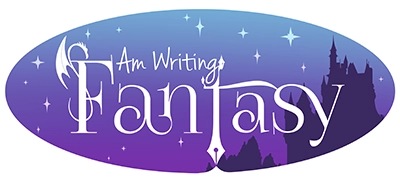Have you reached the end of your first manuscript?
It is a huge milestone! Perhaps a bigger one than you realize because it is estimated that 97% of folks who start writing a book never finish. If you’ve made it to the end of your first draft, you are part of only 3% who do.
If you haven’t finished that first WIP, or are struggling on the next one, how do you avoid becoming part of that 97% who talk about writing but never reach the goal of a novel and land squarely in that target of those who do?
I’m so glad you asked!
There are so many reasons new writers fail. Here are the top three that I’ve seen recently:
What You'll Learn
Bad Ideas
I’m not talking about coming up with a stupid idea for a story. Because, really, if well written just about anything can be an exciting story. The world is RIFE with small stories that are riveting… just as it is full of stories that put you to sleep.
So what makes an idea bad?
Well, it could be not really considering what you are writing. Just because a spark of an idea delivers the drive to start typing doesn’t mean that it will actually lead to a riveting plot that makes sense, especially if you start typing without scoping out where the idea is heading first. And most new writers don’t.
Figuring out if an idea has the guts and the glory to be a story that makes sense and ties up loose ends can keep you on track to actually finish. Plus, it won’t leave you hanging somewhere in the middle when you realize you’ve written yourself into a corner or gotten 50,000 words into your “novel” to realize the story begins there, delivering you to a new page one of your unfinished WIP.
Also, jumping the gun and typing away before you develop characters or the world can lead to a flat story, especially in fantasy where the world almost functions as a character and amazing personas are what readers are looking for. The difference between the stories that bore you to tears and those that hold your interest even when it is about the life of a piece of sand comes down to a well thought out backdrop and a character the reader connects with.
A strong character will virtually write the book for you, especially if the world feels real in your head. All you need to do is give the character a problem to solve, and off they go!
So take some time to develop your story idea, your world, and your characters. It will help get you to the end!
Too Many Characters
Ok, Game of Thrones is awesome. But if this is your first novel, George R.R. Martin is not the demi-god of a writer you should be focusing on. The series alone has over 150 named characters. If you go with just POV characters, it is over 25! That is a freaken lot.
I’ve been accused of having a few too many characters by the time I reached book 6 of my epic fantasy series, and I didn’t top 10. And it was difficult to juggle that many. Why?
Because, first, every character has to be unique. They need to exist as flawed personas with quirks, strengths, histories, and weaknesses. If they are important enough to have a POV, they need to have a character arc. And really, even secondary characters should be developed enough to have an arc and nuances.
Developing all of that is a ton of work!
Plus, the goal of all that work is to create characters the reader bonds with. If you write a thirty-two chapter novel and have eight POV characters, that is only four chapters each. Four chapters to shape a character in a reader’s mind, tell their story and make the reader care.
Consider too that each of those important characters contributes to the plot, pulling it one way in order for them to get what they want, which may or may not be what the heroine needs. Imagine Game of Thrones without Cersei or Jaime. Each of the ruling families shapes the novel. Every strong character has a hand to play. Putting all of that together is a challenge when you are an experienced writer. If you are just starting out, it can undermine the entire novel.
So, instead, choose a handful of really important characters and develop them well. A great central character is all you really need. Remember the Hobbit is almost entirely in Bilbo’s POV, and I don’t think that hurt the story or J.R.R. Tolkien any.
Scale down, focus, and keep yourself from going insane with too many voices in your head (and manuscript!). Check out these tips to help you develop a strong POV for your character!
Writer Doubts
The biggest obstacle in your life is, well, you.
Ok, maybe not you, but that voice in your head that tells you what you are writing is crap, no one will read it, you aren’t good enough, and you just stop now and go watch Netflix. Don’t listen to it!
Writing is a solitary practice, which leaves a lot of room to spend time in your head and sometimes that isn’t the most inspirational place to be. We all face our internal demon once in a while. So, the best place to go and find support is other writers. Join an in-person writing group. Look for meetups in your area, check bulletin boards, find some writer friends and talk writing. You’ll learn a few things, and, more importantly, find out you aren’t alone. Plus, you’ll have someone who will ask you how that next chapter is coming, which will keep you writing.
If you can’t find anything locally, join online groups, like our AmWritingFantasy Facebook group! Writers are amazingly supportive because we know how hard it is and we know that readers aren’t ours exclusively; this is an open relationship! Other writers will help you, so don’t suffer from doubt alone. Reach out.
And one of the best ways to overcome doubts is to learn more about writing, especially the parts that have you worried.
There are a lot of blogs and information out there, like all the resources available here on AmWritingFantasy, including even a free writing course that will help you start writing strong with tips on idea development, give you 7 more reasons that new writers fail (and how to avoid them), and provide 10 tools for success.
Check out the free Ultimate Fantasy Writer’s Starter Kit and build your writing confidence so that you don’t succumb to novice pitfalls. Be the 3% who finishes their book!
And speaking of writers helping each other, how is your writing going? Let me know in the comments!










0 Comments